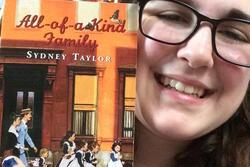The Hidden History of Hanukkah
We all know the story. The courageous Maccabees, the oil that lasted for a miraculous eight nights. We all know the branded fable, the great tale of Hanukkah that has been recited again and again in synagogues and religious schools forever. But it isn’t the whole story. After all, the entire miracle of the oil wasn’t added to the story until hundreds of years after the Maccabees died, when rabbis decided that the holiday needed religious significance. The original Hanukkah story has a lot less in the way of miracles, and more in the way of history. In fact, it is one of the only bible stories supported by actual, historic evidence. And unlike bible stories, history can be quite ambiguous about right and wrong.
Historically, Hanukkah celebrated rededicating the temple. It was about religious freedom as well, but a tighter definition of religious freedom than most realize. Mattathias (Judah Maccabee’s father), was a high priest of Israel when the Romans arrived and mandated that all must practice idol worship. A Roman official demanded that Mattathias sacrifice to the Roman gods, and Mattathias refused. All of this sounds like a nice Jewish story so far, but here’s where it flies off the rails for me. Mattathias then killed the Roman official, but also a Jew who had stepped up to perform the pagan sacrifice ordered by the Romans. The men who became the Maccabees were Mattathias and his sons, including the famed Judah, and they were dedicated priests, not only fighting a war against the Romans, but also against their own. The Maccabees, in between their astonishing military victories and their invention of guerilla warfare, actively engaged in a civil war against Jews who were choosing to assimilate. They were against Jews who, though they still practiced Judaism, also participated in Roman sports and wore Roman clothes. Hanukkah was never a story of oil burning, and it was only partially a story of religious freedom. It’s also an anti-assimilation story.
It is ironic to think that Hanukkah, easily the most publicized Jewish holiday in the United States, is all about the lights and the competition with Christmas. We live in a culture that draws us into Pagan and Christian holidays all the time. It is impossible to live in America in December without hearing Christmas songs and seeing Christmas marketing and trees and lights. Hanukkah has, in a way, become a holiday celebrating our assimilation. We may view this is as a warning, that we are at risk of losing the holiest part of our culture when we begin to fade into our adopted country.
This is a difficult realization for me. As a Reform Jew, and someone who certainly feels like an American as well as a Jew, it is troubling to think that my celebrated ancestors would not accept me today. The Maccabees were radical in a way that probably puts a lot of us on edge. They killed their Jewish brothers and sisters in a time of trial for the entire people, over the issue of assimilation. We can try to justify the Maccabees’ actions, but looking into the text makes this difficult to do, especially for the more assimilated Jews among us. This is when we must remember that history is complicated and difficult. I cannot absolve Mattathias and the Maccabees for what they did. I believe that all people’s beliefs are valuable, all branches of Judaism have something to offer, and that having a diverse identity is important. The fact that the Maccabees are idealized through Sunday school projects and Hanukkah rituals does not mean that they were perfect or always correct. It is imperative to know the whole story, because there’s a darker truth beyond the oil and the freedom fighting. Even our most revered heroes were actual people with beliefs that could be destructive.
I certainly see this story as a way to illustrate the power of our traditions and the importance of progress. I will not shun Hanukkah for its crueler side. I will instead invite you to share in the knowledge that we are a people who have survived over and over again despite persecution and challenges, and our differences are less than our cultural bonds.
Sometimes, history is troubling. Sometimes, we don’t like what we find. But this December, whether you had a menorah or a Christmas tree, or both, you were part of the sacred tradition that is the eternal light of the Jewish people.
This piece was written as part of JWA’s Rising Voices Fellowship.








Wasn't it the Greeks who the Maccabees were fighting? And the story isn't in the Bible, it emerged after the Torah. May I suggest you correct the errors so your insights can be read with more confidence or commission a different piece?